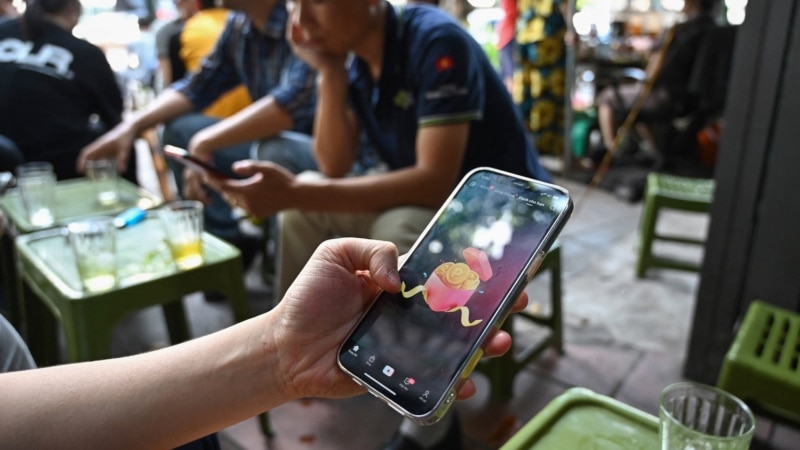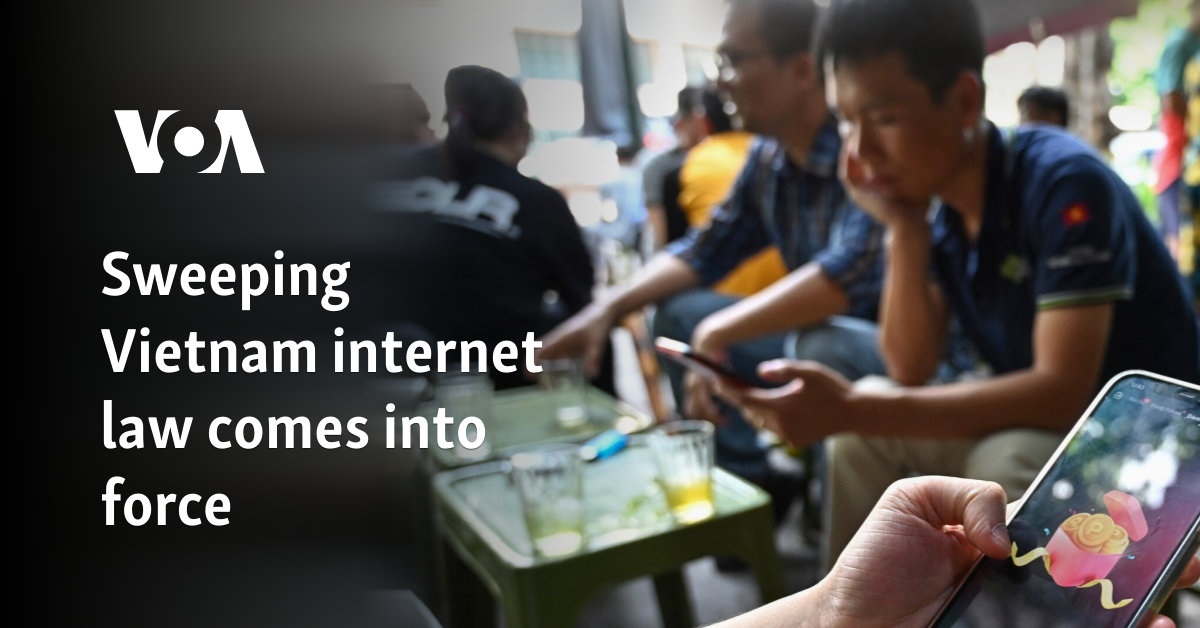
New Vietnamese internet rules requiring Facebook and TikTok to verify users’ identities and hand over data to authorities came into force on Wednesday, in what critics say is the latest attack on freedom of expression in the Southeast Asian nation.
Under “Decree 147”, all tech giants operating in Vietnam are required to verify users’ accounts through their phone number or Vietnamese identification number and store that information along with their full name and date of birth.
They must provide that data to authorities upon request and remove any content deemed “illegal” by the government within 24 hours.
State media VnExpress said the new rules came into effect from Wednesday.
The website said all social media sites were given 90 days to provide authorities with data on “the total number of regular visits from Vietnam” and the number of regular users per month.
“Decree 147 will be used to suppress people with different viewpoints in public,” said activist Dang Thi Hue, who writes about politics and social issues on her Facebook account, which has 28,000 followers.
Le Anh Hung, a former political prisoner, said the decree was “the latest sign of a violation of basic freedoms… There is a blurred line between what is legal and what is not.”
“No one wants to go to jail. So, of course, some workers will be more cautious and fearful of this decree.”
Vietnam’s hardline administration generally moves quickly to suppress dissent and arrest critics, especially those who find an audience on social media.
In October, blogger Duong Van Thai – who had nearly 120,000 followers on YouTube, where he regularly recorded livestreams criticizing the government – was jailed for 12 years on charges of publishing anti-state information.
Decree 147 is based on a 2018 cybersecurity law that was sharply criticized by the United States, the European Union and internet freedom advocates, who said it mimics China’s repressive censorship of the internet.
‘Just keep playing’
The decree also states that only verified accounts can livestream, leading to a huge increase in the number of people earning a living through social commerce on sites like TikTok.
In addition to the impact on social media firms, the new laws also include a ban on gaming for those under 18, designed to prevent addiction.
Game publishers are expected to enforce a time limit of one hour per game session and no more than 180 minutes per day for all games.
Data research firm Newzoo says more than half of Vietnam’s population of 100 million play such games regularly.
A large section of the population is also on social media, with the Ministry of Information and Communications estimating that there are about 65 million Facebook users in the country, 60 million on YouTube and 20 million on TikTok.
The impact of the order was not yet felt at a small online gaming café in the capital Hanoi on Wednesday, where about a dozen young people were glued to their desktop screens.
A 15-year-old boy said, “I don’t know anything about the time limit for the games.” He said that he had left class to play.
“I just keep playing, and as you see, it still works.”
“I never need to show an ID or student card to enter a game store or for my game account online. I don’t know how (the decree) will work. Let’s see.”
The café owner, who charges about 30 cents for an hour of gaming, was similarly careless.
“I don’t know what this decree is about. I don’t know if it will work or not.”
“My business is still running normally. They pay and we let them use the desktop for their gaming. It’s that simple.”






Leave a Reply